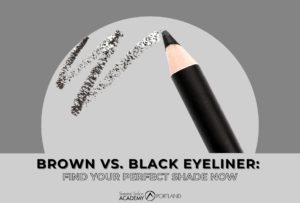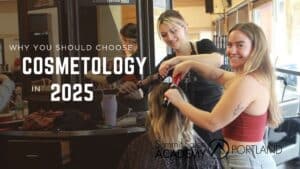The beauty industry has always been at the forefront of innovation, constantly evolving to meet consumer demands and societal shifts. From technological advancements to sustainability and inclusivity, the world of cosmetology is undergoing a remarkable transformation. Let’s delve into the top emerging trends shaping the future of beauty.
AI and Technology Integration
The integration of artificial intelligence (AI) and technology into cosmetology is revolutionizing the industry. Virtual try-on apps powered by augmented reality (AR) allow customers to experiment with makeup, hairstyles, and even nail art before making a purchase. Personalized skincare diagnostics using AI tools analyze skin conditions and recommend tailored solutions, enhancing consumer satisfaction.
Additionally, AI-powered devices like smart facial cleansers and LED therapy tools are becoming household staples, offering professional-grade treatments at home. These technologies not only improve the efficacy of products but also empower consumers to take control of their beauty routines.
Sustainable Beauty Practices
Sustainability is no longer a buzzword—it’s a necessity. Beauty brands are embracing eco-friendly practices by using biodegradable packaging, reducing carbon footprints, and sourcing ethical ingredients. Waterless beauty products, such as solid shampoos and powdered cleansers, are gaining traction as they minimize water usage and are easier to transport.
Refillable packaging is another noteworthy trend, encouraging customers to reduce waste. Brands are also investing in clean energy production processes and partnerships with organizations focused on environmental conservation.
Inclusivity and Diversity
The push for inclusivity in beauty has shifted from niche to mainstream. Brands are expanding shade ranges for foundations and concealers to cater to all skin tones. Haircare lines are now addressing the unique needs of textured hair, offering products for curly, coily, and wavy hair types.
Representation in advertising and marketing campaigns has also improved, showcasing people of diverse backgrounds, body types, genders, and abilities. This shift not only reflects societal values but also fosters a stronger connection between brands and their consumers.
Holistic Beauty
The concept of beauty is increasingly linked to overall well-being. Holistic beauty emphasizes the connection between mental, physical, and emotional health. Consumers are now prioritizing products that promote skin health while also supporting stress relief and relaxation.
Beauty supplements, adaptogenic skincare, and aromatherapy-infused products are trending as they offer multifaceted benefits. Spas and salons are also incorporating wellness therapies like sound healing, meditation, and energy balancing into their offerings.
At-Home Professional Treatments
The demand for at-home beauty solutions has surged, particularly after the pandemic. Consumers are investing in professional-grade tools like microcurrent devices, dermaplaning kits, and laser hair removal systems. These innovations make it easier for individuals to achieve salon-quality results without leaving their homes.
Subscription services for skincare, makeup, and haircare products are also on the rise, offering curated solutions delivered to consumers’ doorsteps.
Biotechnology in Beauty
Biotechnology is making waves in cosmetology by creating lab-grown ingredients that are sustainable and effective. For example, lab-grown collagen and plant-based alternatives to animal-derived ingredients are being incorporated into skincare formulations.
This approach ensures high purity levels, reduces the impact on natural resources, and opens the door for innovative product development.
Customization and Personalization
Gone are the days of one-size-fits-all beauty products. Personalized formulations tailored to individual needs are now in high demand. Brands are using advanced diagnostic tools to analyze factors like skin type, climate, and lifestyle to create bespoke products for their customers.
Some companies even offer DNA-based skincare, where genetic testing identifies specific predispositions and provides targeted solutions for optimal results.
Minimalist Beauty
Minimalism in beauty—often referred to as “skinimalism”—is encouraging consumers to embrace their natural beauty. The focus is on achieving healthy, glowing skin with fewer products. Multi-functional products, like tinted moisturizers with SPF and skincare-infused makeup, are key players in this trend.
This approach not only simplifies routines but also aligns with the growing preference for sustainable and cost-effective solutions.
The future of cosmetology is a dynamic blend of innovation, sustainability, and inclusivity. As these trends continue to shape the industry, beauty professionals and consumers alike are poised to benefit from more effective, ethical, and personalized solutions. Staying ahead of these trends is not just about embracing change—it’s about creating a more inclusive and sustainable future for beauty.
*****************
Are you ready to shape the future of beauty? Join Summit Salon Academy of Portland, the leading cosmetology school in Oregon, offers comprehensive education in various beauty disciplines, including esthetics. If you’re ready to turn your passion into a profession, click here to learn more about our programs and how to enroll




